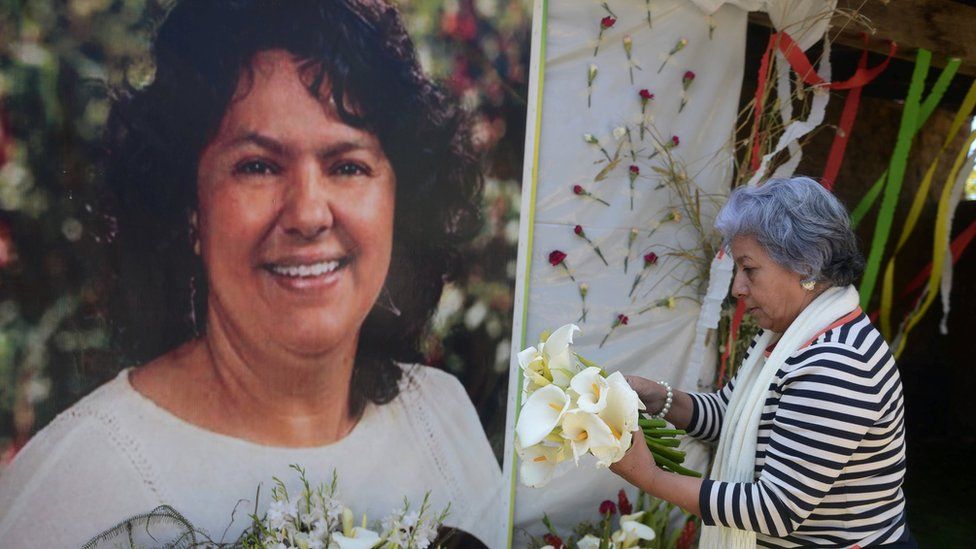Berta Cáceres: Ex-dam boss jailed for planning Honduran activist's murder
- Published

A court in Honduras has sentenced a former energy executive to more than 22 years in jail over the murder of an environmental activist in 2016.
Berta Cáceres led protests against the Agua Zarca hydro-electric dam project before being shot dead in her home.
The court ruled that Roberto David Castillo, whose company had been awarded the contract, had planned the murder and hired the gunmen.
Seven others have been convicted for their role in the killing.
Castillo is the former president of Honduran power company, Desa, and was once an army intelligence officer.
The court found he used his military contacts and paid informants to coordinate and plan the murder of the high profile activist, who was awarded the prestigious Goldman Prize in 2015 for her role in stopping the building of the dam.
Cáceres had faced years of threats over her opposition to the dam project which was being run by Castillo's company.
The dam would have flooded large areas of land and cut off the supply of water, food and medicine for hundreds of the indigenous Lenca people in western Honduras.
As well as filing official complaints, Cáceres organised a road block that prevented construction workers from reaching the site.
The Chinese state-owned company Sinohydro, which was jointly developing the project, eventually pulled out because of the community resistance.
In 2018, seven others, including another Desa executive, received sentences of between 30 and 50 years for their roles in Cáceres' murder.
The Council of Popular and Indigenous Organizations of Honduras (COPINH) welcomed Castillo's sentence and called for more investigations into people associated with Desa.
But Cáceres' daughter, Olivia Zuniga Cáceres, tweeted that she was "outraged" because Castillo had "not received the maximum sentence".
One of Castillo's defence attorneys told Reuters news agency that her team planned to appeal the sentence.
Related Topics
- Published3 December 2019
- Published5 July 2021